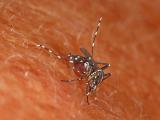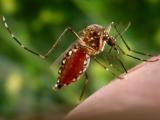Apr 13, 2004 (CIDRAP News) The dengue fever epidemic in Indonesia totaled 52,013 cases with 603 deaths between Jan 1 and Apr 4, but it has passed its peak in some provinces, according to the World Health Organization (WHO).
The number of cases for the 3-month period was double the count a year ago, but the overall case-fatality rate is lower than in previous years, the WHO said in an Apr 8 news release. The case numbers have been unusually high in at least 12 of Indonesia's 32 provinces, the agency said. Provinces in Jawa (Java) have been especially hard-hit, with more than 35% of cases reported in DKI-Jakarta.
On the basis of weekly reports, the epidemic apparently peaked in March in at least five provinces, but was still rising in at least two others, the WHO said.
The Indonesian government has been providing free hospital care to needy dengue patients, the agency said. Local health authorities have been working with communities to eliminate unwanted containers that provide breeding grounds for Aedes aegypti mosquitoes, which carry the dengue virus.
Indonesian authorities said in February that they suspected a new strain of the dengue virus might be circulating, but the WHO statement mentioned no new strain. It said Den-3 has been the predominant strain this year, but Den-4, Den-2, and Den-1 have also been identified in samples from patients in Jakarta.
Dengue fever is a flu-like illness involving headaches, rashes, cramps, and back and muscle pain. Symptoms last about 2 weeks, and the disease can be fatal if supportive treatment is delayed. Dengue hemorrhagic fever, a potentially deadly complication, is characterized by high fever; hemorrhagic phenomena, often with enlargement of the liver; and in severe cases, circulatory failure.
See also:
Apr 8 WHO statement
http://www.who.int/csr/don/2004_04_08/en/
WHO's dengue information page
http://www.who.int/csr/disease/dengue/en/




















